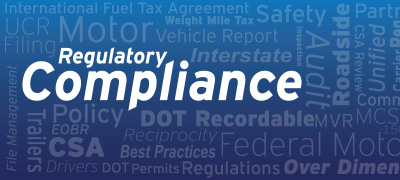Occupational Safety and Health Administration (OSHA), which is the federal agency entrusted with promulgating and enforcing legislation pertaining to safety and health at the workplace; has regulations to this effect for the various areas in which it works.
OSHA’s new Silica Rule is part of its efforts at preventing the many diseases to which workers whose workplaces expose them to respirable crystalline silica for long durations. Some of the common health issues to which workers in industries that use respirable crystalline silica include lung cancer, silicosis, kidney disease and chronic obstructive pulmonary disease.

Aimed at strengthening preventive measures
OSHA’s new Silica Rule is a detailed standard that lists out elaborate safety standards that need to be implemented in order to limit the damage caused by exposure to these materials for those working in this industry. The new Silica Rule has regulations that are divided into two standards, namely one for the construction industry and the other for maritime and general industry. This new Silica Rule is applicable to well over two million workers who are exposed to respirable crystalline silica in the course of their work life.

OSHA’s new Silica Rule is aimed at the nearly two million workers in the construction industry who are involved in work such as drilling, cutting, crushing or grinding materials such as concrete and stone, which contain silica, and nearly 300,000 workers who are involved in general industry work, such as foundries, brick manufacturing and fracking.
New regulations impact the industries that expose employees to respire crystalline silica
For years, the standard step taken for protection of these employees has been the use of equipment such as a vacuum system or using water to control dust. This industry will be under a new set of regulations that have come into effect from March 2016. Employers in industries that use respire crystalline silica in their work will have be thorough with the regulations set out in this new standard.

How do employers understand the ways in which the new OSHA Silica Rule differs from the one in the past? How do they understand how to implement the new changes suggested in this regulation? These and other related areas will be discussed at a webinar that is being organized by MentorHealth, a leading provider of professional trainings for the healthcare industry.
At this webinar, which is focused on the new OSHA Silica Rule, Michael J. Aust, Senior Safety Specialist at 1030 Communications, LLC and has a Master of Science in Occupational Safety, Health and Environmental Management and is a Certified Environmental Compliance Manager #5678, will be the speaker.
In order to understand the way in which the new OSHA Silica Rule works and to get a grasp of how to implement the new changes into the relevant workplace, please register for this webinar by logging on to
http://www.mentorhealth.com/control/w_product/~product_id=800951?/Wordpress
All areas of the new OSHA Silica Rule
At this webinar, Michael will explain the impact of the new OSHA Silica Rule on employers in sectors that are affected by it. He will discuss the standard and will explain how workplaces get affected by the elements of this new OSHA Silica Rule. An area of relevance and importance is the set of requirements of the new rule. These include:
- Permissible Exposure Limit
- Medical surveillance
- Engineering controls
- Administrative procedures that are required for these sections.
Michael will also explain the deadlines for compliance of each of these. He will cover the following areas at this session:
- Key Provisions of the new OSHA Silica Rule
- Sampling methods required by the new law
- Medical surveillance required by the new OSHA Silica Rule
- Elements of an Exposure Control Plan (ECP)
- Regulatory compliance dates for specific industries.













